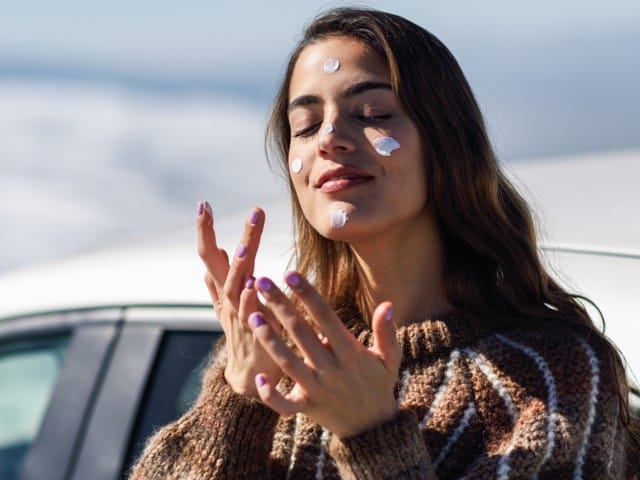Can you get a sunburn in the winter?

Most people know that sunburns increase skin cancer risks, but many are unaware of how to protect themselves year-round. While it seems obvious to wear sunblock during the hottest, sunniest months of the summer, patients don't realize how important it is to continue protecting their skin even in the winter. Dr. Francisco Kerdel and his team at Florida Academic Dermatology Center are here to dispel myths that you may have heard about caring for the skin during the winter months.
How do sunburns increase my risk of skin cancer?
Sunburn damages the genetic material in your skin cells. This damage can lead to skin cancer. The more severe the sunburn, the greater the risk of developing skin cancer. People who have had five or more sunburns in their lifetime have an increased risk of developing melanoma, which is the deadliest form of skin cancer. Even one bad sunburn during childhood or adolescence can triple your lifetime risk of melanoma.
People with a history of sunburns are also at increased risk for squamous cell and basal cell carcinomas, two other types of skin cancer. These two types of skin cancer are not as deadly as melanoma, but they are much more common. Basal cell carcinomas are the most common type of all cancers.
People with fair skin, blond or red hair, and blue or green eyes are at the greatest risk for sunburn and skin cancer. But anyone can get sunburned and develop skin cancer, regardless of skin color.
Can you get a sunburn in the winter?
Yes, you can still get sunburn in the wintertime. The sun's ultraviolet (UV) rays can reflect off of water and cause sunburn, just like during the summer months. So it is critical that you protect your skin with sunblock, even when it is cold or cloudy outside.
Protecting your skin during the winter months
Wearing sunscreen and protective clothing is necessary when spending time outdoors, but it is especially crucial during the winter months. Water will reflect up to 80% of the sun's harmful UV rays, which can lead to sunburn, extensive skin damage, and even skin cancer.
Make sure you lather up with sunscreen before heading outdoors this winter!
If you are interested in learning more about how to protect your skin from the sun's harmful rays, call Florida Academic Dermatology Center of Coral Gables, FL, today at 305-324-2110. Dr. Francisco Kerdel and his associates can educate you on the risks associated with skin cancer and how to keep the skin safe all year long!